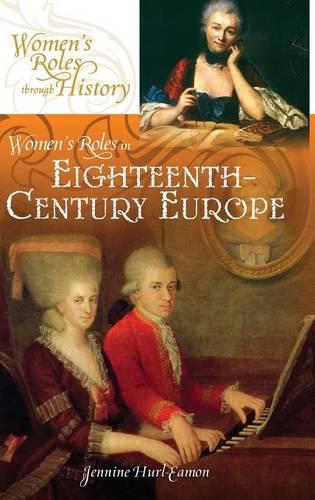
Women's Roles in Eighteenth-Century Europe
(Hardback)
Publishing Details
Women's Roles in Eighteenth-Century Europe
By (Author) Jennine Hurl-Eamon
Bloomsbury Publishing PLC
Greenwood Press
9th April 2010
United States
Classifications
Professional and Scholarly
Non Fiction
305.409409033
Physical Properties
Hardback
208
Width 156mm, Height 235mm
454g
Description
This concise historical overview of the existing historiography of women from across eighteenth-century Europe covers women of all ages, married and single, rich and poor. During the 18th century, the Enlightenment, the French Revolution, protoindustrialization, and colonial conquest made their marks on women's lives in a variety of ways. Women's Roles in Eighteenth-Century Europe examines women of all ages and social backgrounds as they experienced the major events of this tumultuous period of sweeping social and political change. The book offers an inclusive portrayal of women from across Europe, surveying nations from Portugal to the Russian Empire, from Finland to Italy, including the often overlooked women of Eastern Europe. It depicts queens, an empress, noblewomen, peasants, and midwives. Separate chapters on family, work, politics, law, religion, arts and sciences, and war explore the varying contexts of the feminine experience, from the most intimate aspects of daily life to broad themes and conditions.
Reviews
While the 18th century was a time of great social and political upheavals in Europe, the lives of most womenpoor womenwere little affected by these changes. Nonetheless, suggests Hurl-Eamon (History, Trent University), the century saw the begins of important debates over the status of women, and some middle-class and upper class women were able to move outside of traditional women's roles. In this book, the author looks at women across Europe and across classes, examining their lives in terms of their roles in family, work, politics, law, religion, arts and sciences, and war. * Reference & Research Book News *
Author Bio
Jennine Hurl-Eamon, PhD, is associate professor of history at Trent University, Peterborough, Canada.
